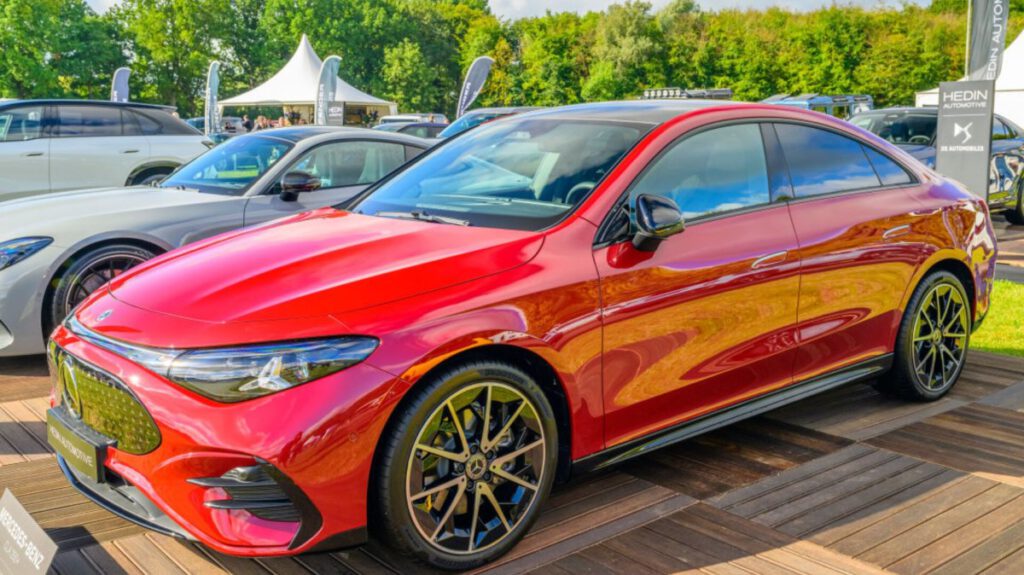Mercedes-Benz is stuck in the CO2 middle.
On the one hand, according to T&E Research, the German luxury auto marque was the only European carmaker on track to miss EU 2025-2027 emission targets during the first seven months of the year.
Mercedes has been a vocal opponent of the EU targets; this year, it is 10 gCO2/km undercompliant. If this trend holds for the rest of the year, it would need to purchase emission credits from Volvo Cars and Polestar, two car companies that are over-compliant.
This is despite positive market dynamics, which are pushing electric sales. Battery costs are set to “fall by 27% between 2022 and the end of this year and are set to decrease by another 28% by 2027 compared to 2025 levels,” according to the T&E report.
On the other hand, Mercedes-Benz says it has developed new tech that could be a game-changer and reduce the carbon footprint of its electric vehicles even further.
Sjoerd van der Wal/Getty Images
Mercedes-Benz turns to low-carbon aluminum to make greener EVs
This week, Mercedes-Benz executives told Reuters about the recycled aluminum it uses to build their new line of EVs.
The metal, made by Norway’s Norsk Hydro, emits just 3 kg (6.6 pounds) of CO2/kg during production, compared to the global average of 16.7 kg.
Related: EV car makers get a positive update from beleaguered supplier
The metal, which is made with renewable power and from recycled parts, will be used to make the new Mercedes CLA model.
The new CLA will be made with 40% less emissions than its non-electric predecessor.
The company sees growing demand for “low-carbon products,” but admits that the metal costs much more.
Earlier this summer, Mercedes-Benz paused its U.S. orders and deliveries for some of its EV models, including several in its EQ lineup. The company is also cutting EV prices in the U.S. due to falling demand.
Mercedes-Benz reports disappointing Q2, hurt by tariffs
Mercedes-Benz is scheduled to report its third-quarter results on October 29.
It is looking to reverse the decline from a second quarter hampered by tariffs.
Across all its brands, the automaker delivered 547,100 cars between April and June.
Mercedes’ Cars unit reported a 9% decline to 453,700 vehicles sold as support in the U.S and China both dried up.
Perhaps most concerning was the 18% drop in battery electric sales to 41,900 vehicles.
North America deliveries fell 14%, while China deliveries declined 19%.
“Deliveries to dealerships were carefully calibrated to navigate new global tariff policies, impacting sales of Mercedes-Benz Cars in the U.S. and China in particular,” according to a statement from Mercedes.
European sales were up 1%, while sales in Germany rose 7%.
According to a Bernstein note viewed by Reuters last week, Mercedes expects tariffs to also significantly impact its third-quarter performance.
Related: Car buyers switching brands get more great deals




